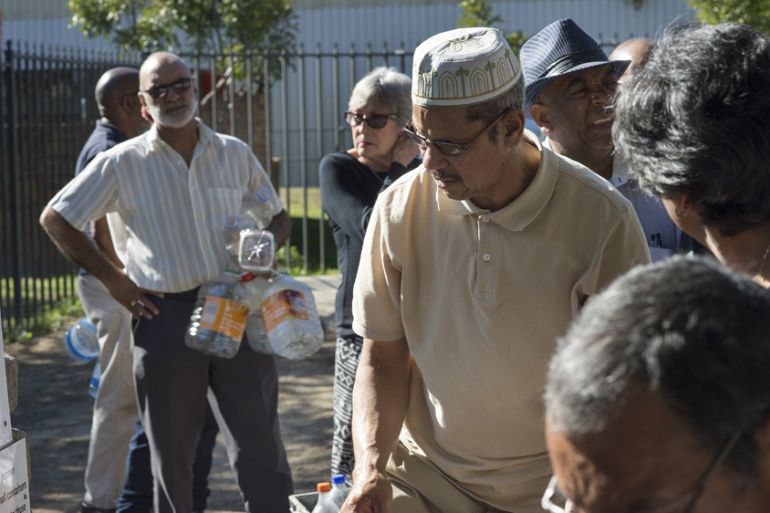Cape Town cuts back to survive ‘stubborn’ drought
Authorities call on residents of South African city to limit showers to two minutes and flush toilets only if necessary.

Residents in Cape Town, South Africa, have been told to restrict showers to two minutes and flush toilets only when “absolutely necessary”, as the South African city suffers its worst drought in a century.
Local authorities have declared Cape Town and the surrounding Western Cape province a disaster area, with less than 10 percent of usable water left in the dams supplying the region.
Keep reading
list of 4 itemsAustralia’s Great Barrier Reef suffers worst bleaching on record
At least 15 killed after landslides hit Indonesia’s Sulawesi island
Lost Futures
“Dam levels are at 9.7 percent. #ThinkWaterCT and use below 100 litres per person, per day,” the government said on its official Twitter account on Tuesday.
|
|
“The drought we are currently experiencing is the most stubborn in recent history. It is a significant shock to the fabric of our city and accentuates many other underlying stresses such as urbanization,” Executive Mayor Patricia de Lille said in a statement on the same day.
The drought has let to a gradual escalation of restrictions, from the limits on splashing at public pools earlier this year to the current complete ban on topping up swimming pools or watering gardens.
The newest restrictions limit residents to 100 litres per person a day and rule out its use for anything other than cooking, drinking and essential cleaning.
De Lille urged residents to embrace the fact that water scarcity is “the new normal” and accept that they are living in a drought-stricken area.
“We all need to change our approach to scarcity. It does not mean that our lives should be diminished or the economy negatively affected,” de Lille said.
Last week Virgin Active, a health club operator, said it would close saunas and steam rooms at its gyms across the province.
Officials criticised
The city said it is issuing fines and notices to appear in court after publishing earlier this year a name-and-shame list of the worst water offenders in Cape Town.
However, officials themselves have faced criticism for failing to implement usage restrictions sooner, and have been accused of ignoring warnings by experts in the years before the drought.
Some locals have taken to collecting water at a natural spring near a brewery in the city.
Many are convinced that with dam levels so low, the quality of tap water has declined – a rumour that the city has been battling for months.
Strong summer rains have seen much of southern Africa recover from a drought induced by El Nino.
However, Mediterranean-like Cape Town, South Africa’s most popular destination, receives most of its rain in the southern hemisphere’s winter – and scientists warn there is no guarantee of a good rainy season.
Many climate models point to a hotter and drier Western Cape, with high-pressure systems blocking rain-carrying fronts more frequently.
In the short term, the city seeks to recycle waste water and is drilling into aquifers under the nearby Table Mountain landmark.
The city is also looking at accelerating plans to build two desalination plants, a move already adopted by some of the driest towns in the region.